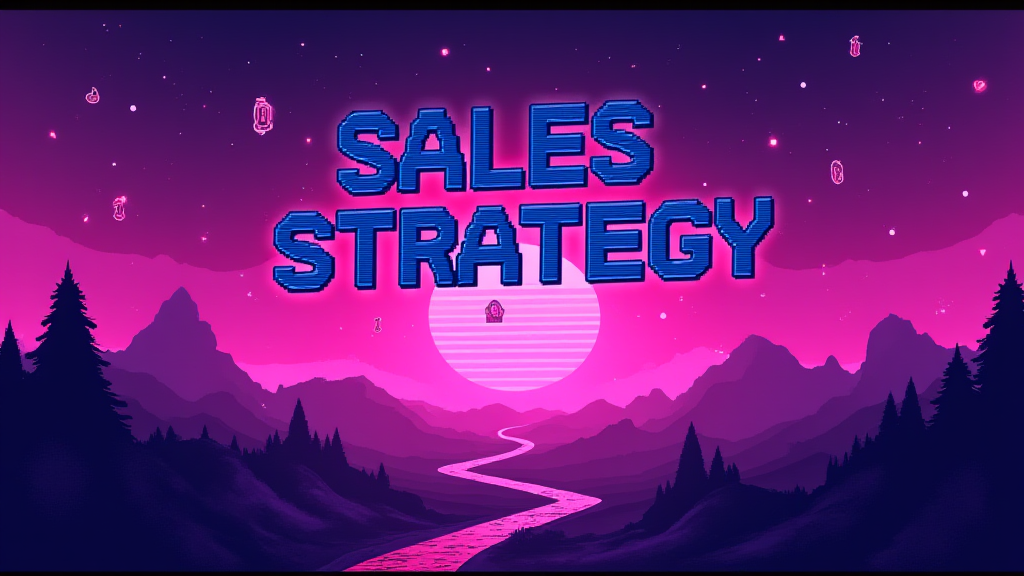Sales Strategy: Driving Revenue Growth

Published on: October 01, 2024
What is a Sales Strategy?
A sales strategy is a comprehensive plan that outlines how a company will position its products or services, target customers, and achieve its sales objectives. It encompasses various elements, including:
- Target market identification
- Customer segmentation
- Value proposition
- Sales channels
- Pricing strategy
- Sales tactics and techniques
Why is a Sales Strategy Important? 🎯
An effective sales strategy is vital for several reasons:
- Alignment: It aligns sales efforts with overall business goals
- Focus: It helps prioritize resources and efforts on high-potential opportunities
- Consistency: It ensures a uniform approach across the sales team
- Adaptability: It provides a framework for adjusting to market changes
- Measurability: It establishes KPIs for tracking performance
Key Components of a Successful Sales Strategy
- Market Analysis: Understanding your target market, competitors, and industry trends
- Customer Personas: Developing detailed profiles of your ideal customers
- Value Proposition: Clearly articulating why customers should choose your product or service
- Sales Process: Defining the steps from lead generation to closing deals
- Sales Channels: Determining the most effective ways to reach your target audience
- Sales Enablement: Providing tools and resources to support your sales team
- Performance Metrics: Establishing KPIs to measure success and identify areas for improvement
Types of Sales Strategies
Different businesses may adopt various sales strategies based on their goals and market conditions. Some common types include:
| Strategy Type | Description |
|---|---|
| Account-Based Selling | Focusing on high-value accounts with personalized approaches |
| Solution Selling | Emphasizing how products solve specific customer problems |
| Consultative Selling | Positioning sales reps as trusted advisors to customers |
| Inbound Sales | Attracting customers through content marketing and lead nurturing |
Implementing Your Sales Strategy 🚀
To successfully implement your sales strategy:
- Communicate the strategy clearly to all stakeholders
- Provide necessary training and resources to your sales team
- Regularly monitor performance and gather feedback
- Be prepared to adapt and refine your strategy as needed
Common Challenges in Sales Strategy
While developing and implementing a sales strategy, be aware of these potential pitfalls:
- Lack of alignment between sales and marketing
- Insufficient market research or customer understanding
- Inflexibility in adapting to market changes
- Inadequate performance tracking and analysis
- Failure to provide ongoing training and support to the sales team
Measuring Sales Strategy Success
To evaluate the effectiveness of your sales strategy, consider tracking these key performance indicators (KPIs):
- Revenue growth
- Customer acquisition cost (CAC)
- Customer lifetime value (CLV)
- Sales cycle length
- Win rate
- Average deal size
Remember, a successful sales strategy is not a one-time effort but an ongoing process of refinement and optimization. By continuously analyzing your results and adapting to market changes, you can ensure that your sales strategy remains effective in driving revenue growth.
Questions to Consider for Your Sales Strategy
As you develop or refine your sales strategy, ask yourself:
- How well do we understand our target market and ideal customer profile?
- Is our value proposition clearly differentiated from competitors?
- Are our sales channels aligned with our customers' preferences?
- How can we better enable our sales team to succeed?
- What data-driven insights can we leverage to improve our strategy?
- How can we integrate our sales strategy with our overall marketing efforts?

















